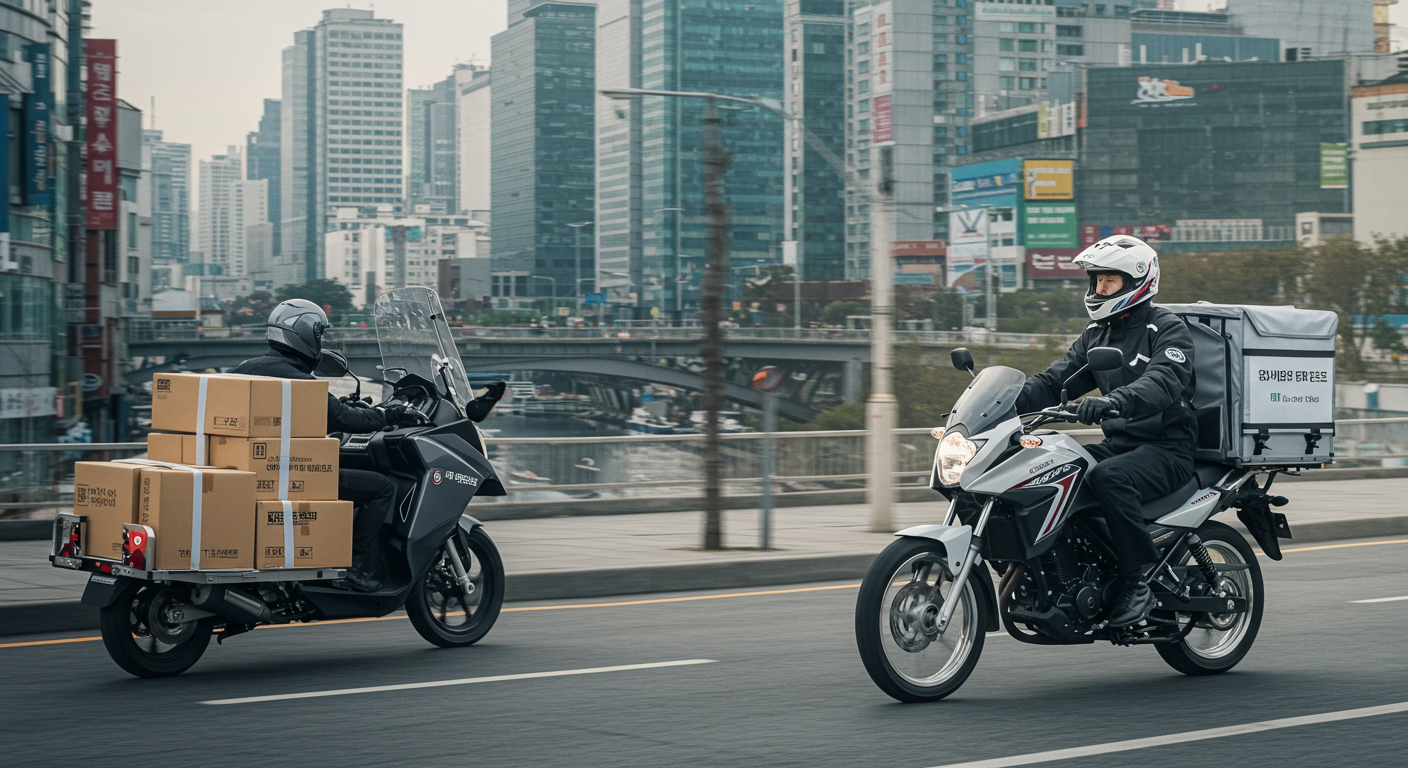Introduction – What is Quick Delivery?
In Korea, “quick delivery” refers to services that use motorcycles or vehicles to deliver small items rapidly. Especially in large cities like Seoul, they bypass traffic congestion to deliver items in record time, making them a daily necessity for many.
The Birth of Quick Delivery
Korean quick delivery services emerged in the late 1990s as urbanization and the information age accelerated. Companies urgently needed to send documents or product samples quickly, leading to a natural demand for rapid courier services. Korea’s well-known “bbali-bbali” (hurry-hurry) culture also played a significant role in this growth.
Korean Sentiment and Quick Services
Korean society values community and mutual care—this sentiment is captured in the concept of ‘jeong’ (정). Quick services are not just about logistics; they embody customer care and reliability. Couriers understand the urgency behind each delivery and go the extra mile to ensure satisfaction.
For example, many couriers take great pride in their promptness, often calling ahead and updating customers in real time. This is more than efficiency—it’s emotional service rooted in empathy.
Foreigners’ Impressions of Quick Delivery
Foreigners living in Korea are often amazed by the speed and efficiency. Jake, an exchange student from the U.S., remarked, “In Korea, it’s normal for something to arrive within a few hours. That would be unheard of back home.”
Saori, a Japanese student, noted, “It’s not just about being fast. You can really feel the consideration for the customer.”
These impressions reflect how Korean courier services go beyond logistics—they leave emotional imprints.

Conclusion – The Future of Quick Services
Korean quick delivery has evolved into a trusted, customer-focused service model. With technological advancements, it is expected to become even more efficient and environmentally conscious.
Moreover, as a service reflecting Korean culture and sentiment, it holds potential for global interest. It’s not just about parcels—it’s about building a human connection.
🔗 Recommended reads to go with this post
